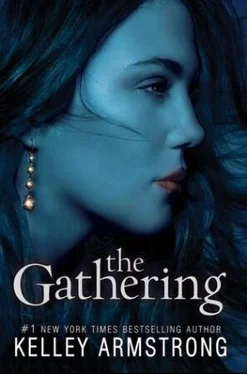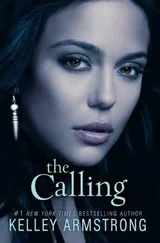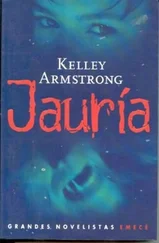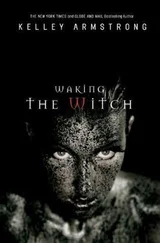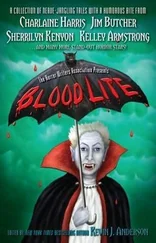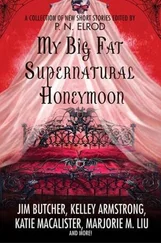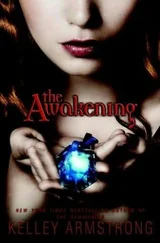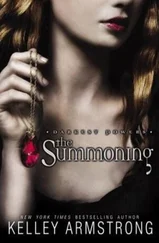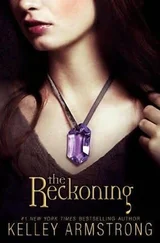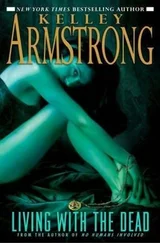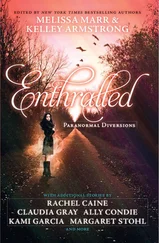“Is she Haida?”
Mom shook her head. “I believe she’s a member of the Scots tribe.”
In other words, Caucasian. That could earn her some ill will among Natives if she used their designs in tattoos, but Mom would say it was no different than a Russian tattooing Celtic knot work. As long as she’d studied the art and understood its meaning, Mom would be fine with it. Grandma would disagree. They’d respect each other’s opinions, though, and Mom always said that was the important thing.
Mom continued. “I chose Deena because she specializes in traditional tattooing, which I think would work best for what you want.”
I needed a free-form tattoo, not one done with a stencil. It can be a whole lot harder to find someone who can do one, unless you want it looking like a prison tat. There wasn’t much risk of that here. The studio looked like a combination doctor’s office and art gallery, all clean lines and cool colors.
There was no one in the front room. When Mom opened the door, a woman’s voice called, “Just a minute!”
I walked over to a sign that read TRIBAL TATTOOS. In smaller print, it said, IF YOU DON’T KNOW YOUR TRIBAL TATTOO, PLEASE DON’T ASK ME. THE BEST WAY TO HONOR YOUR HERITAGE IS TO LEARN ABOUT IT YOURSELF.
A voice floated over from the next room, “Nothing worse than getting a Cherokee facial tattoo and discovering your grandmother was really Assiniboine.”
Mom greeted the young woman, who didn’t look a lot older than me. She was about my height, with reddish-brown hair. Freckles dotted her round face. She introduced herself as Deena.
“You get a lot of that?” I asked, pointing at the sign.
“Unfortunately, yes. That’s the problem with having a shop in the tourist district. People with some Native blood come in here, wanting to recognize that part of their heritage, which is wonderful; but if you aren’t even sure what your heritage is, you’ve got a long way to go before you ink yourself with it.”
“So no Kokopelli for me,” I said. “I guess I’ll have to go with the unicorn.”
Deena laughed. “Yes, your mother tells me she thinks you’re Navajo.”
“She’s not,” said a quavering voice from the back room. An old woman appeared. “That girl is not Navajo.”
“Aunt Jean,” Deena murmured under her breath. “I’m working. Please don’t—”
“You’re not Navajo.” The woman jerked her chin at my mother. “So your daughter isn’t Navajo.”
I could see my mom struggling not to snap back, “You aren’t either.” Mom has issues with the whole “respect for elders” part of her culture. She did raise me to show respect—just not the blind sort she’d grown up with.
“My daughter is adopted,” she said evenly.
“That’s not what I mean. The Diné do not give up their children.”
She was right. The U.S. Indian Child Welfare Act overrode state adoption laws, giving tribes the right to overturn legal adoptions if the new parents weren’t part of their nation.
“This is my great-aunt Jean,” Deena said. “She’s a folklorist. Lived with the Navajo for … how long, Auntie?”
The old woman ignored her and kept staring at me.
“She’s the one who got me interested in native traditions.” A note of desperation crept into Deena’s voice as she hurried on. “I was fascinated by her work, and I’m thrilled that she’s come to live with me as her health declines.”
She emphasized the last words, and Mom nodded, taking this to mean we were seeing signs of dementia. My great-grandfather has that, so we know what it’s like.
“Why didn’t the Diné want her?” the old woman asked.
“I was left at a hospital in Portland,” I said. “I’m obviously Native, but there’s no way of telling what tribe. My grandmother has friends who are Navajo and they said I look Navajo. Doesn’t mean I am, but unless my bio parents come forward, no one’s ever going to know for sure.”
“Your mother didn’t want you either?”
Mom stepped in front of me. “I think we should leave now.”
Deena leaped in with apologies, then turned on her aunt and reminded her that this was her place of business. I could tell Mom wanted to leave, but when the old woman retreated to the back room, she calmed down.
I talked to Deena about my tattoo. Then Mom handed me my bathing suit and I went into a side room to change. I could hear Deena trying to distract Mom by talking about a university friend who’d studied Mom’s work at Emily Carr.
Mom’s an architect who specializes in designing homes that fit into the natural landscape, and she’s well known for it. Talking about her work was a good call, and by the time I came out, she was back to her usual self.
Deena had me stand on a chair so she could get a better look at my birthmark.
“It used to be darker,” Mom said. “It’s faded as she’s gotten older, and she wants to keep it.”
“In other words, make it as natural looking as possible,” Deena said.
I nodded. “Just tattoo over what’s there. I don’t want to change it or make it look more like a paw print or anything.”
“No reason to,” Deena said, her fingers tracing the edges. “It already does. Remarkable.”
“What is that?” came the old woman’s voice, so low I barely heard her. I turned to see her in the doorway staring at me.
“It’s a birthmark, Auntie. Looks like a cat’s paw, doesn’t it?”
The old woman muttered something I didn’t catch. Deena tried to smile, but it was strained. “We don’t speak Navajo, Auntie.”
The old woman’s gaze met mine and in it I saw fear and disgust. “I said, ‘Yee naaldlooshii.’ ” She turned to my mother. “That’s why the Diné didn’t want her. She’s a witch.”
Mom didn’t say a word, just set her jaw like she was locking it shut and handed me my clothing. I hesitated, but one look in her eyes told me not to argue. As I pulled on my clothes over my bathing suit, Deena apologized again and begged her aunt to leave. Neither my mom nor Deena’s aunt paid any attention, Mom fuming, the old woman glowering and mumbling under her breath.
When I was dressed, Mom ushered me to the door. I took one last longing look at a display of tattoos, then followed her out.
WE WALKED A FEW doors down before Mom turned to me, deflating. “I’m sorry, Maya. I know you were really looking forward to getting that tattoo.” “It’s okay.” It wasn’t okay. If I had to wait, Dad might change his mind. There was no way I could go back to that shop, though.
Mom looked around, distracted, her gaze finally settling on Bubble Tea Stars. “You were hungry, weren’t you? Let’s go get you something to eat and I’ll call your dad.”
I wasn’t hungry anymore, but I followed her in. She phoned Dad, saying only that there’d been a problem and I’d need to get my tattoo another day.
“We’ll go to Vancouver next weekend,” she said when she hung up. “Make a special trip of it.”
Exactly what Serena had suggested just before she died. Her last words. I blinked back a prickle of tears and turned to peer into the ice cream freezer.
“I’m really sorry, Maya. I shouldn’t have lost my temper. She was obviously senile and I overreacted.”
“Do you know what that word meant? The one she called me?”
She shook her head. “No idea. I don’t even know if it’s Navajo. She may have lived with them, but she’s white. The language is nearly impossible for an outsider to learn.”
“Calling me a witch, too.” I shook my head. “At least give me a chance to earn it first.”
Mom tried to smile and surveyed the menu blankly, like we hadn’t been in here so often the counter girl had recognized us and said hello. Mom finally ordered an herbal tea with lemongrass. I got lychee bubble tea—cold milky tea with tapioca balls.
Читать дальше
